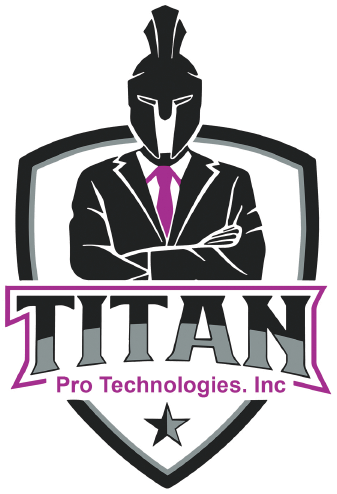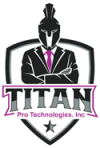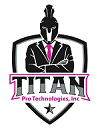Efficiency and organization are paramount in the dynamic world of construction and contracting. For roofing companies, managing multiple projects, coordinating teams, and ensuring smooth communication with clients can be challenging without the right tools. This is where residential roofing management software revolutionizes how roofing companies operate. From streamlining project management to optimizing workflow processes and enhancing customer satisfaction, roofing management software is becoming indispensable. This comprehensive guide explores everything you need to know about roofing management software.
Importance of Roofing Management Software
Roofing management software plays a pivotal role in the efficiency and profitability of roofing businesses. It is a centralized platform that integrates various tools and functionalities to streamline operations and improve productivity. By automating mundane tasks such as scheduling, invoicing, and reporting, roofing management software allows contractors to focus more on project execution and client relationships.
In today’s competitive construction industry, where margins can be tight, and project complexities abound, having robust management software can make all the difference. Whether you’re a small roofing contractor looking to streamline operations or a large company managing multiple projects simultaneously, investing in the right roofing project management software can significantly enhance your business operations.
Features of Roofing Management Software
The best roofing CRM software comes equipped with a comprehensive suite of features designed specifically for the needs of roofing contractors. These include:
- Project Tracking and Management: Tools for tracking project progress, managing tasks, and allocating resources efficiently.
- Job Costing and Estimation: Capabilities for accurate cost estimation, bid management, and profitability analysis.
- Scheduling and Calendar Management: Functions for scheduling tasks, appointments, and project milestones, ensuring timely completion.
- Customer Relationship Management (CRM): Features for managing client interactions, tracking leads, and maintaining customer satisfaction.
- Integration with Accounting Systems: Seamless integration with accounting software for streamlined invoicing, expense tracking, and financial reporting.
- Document Management: Tools for storing and managing contracts, permits, warranties, and other project-related documents securely.
These features streamline administrative tasks, improve team members’ collaboration, enhance client communication, and provide real-time visibility into project progress.
Comparison of Residential and Commercial Roofing Management Software
Residential and commercial roofing project management software caters to distinct needs and requirements based on the scale and complexity of projects typically undertaken in each sector.
- Residential roofing contractor software is designed to streamline operations for contractors handling smaller-scale projects such as individual homes and residential complexes. Key features include user-friendly interfaces for quick estimation and proposal generation, homeowner communication tools to keep clients informed throughout the project lifecycle, and simplified billing processes tailored to residential clients. These software solutions emphasize ease of use and rapid project turnover, making them ideal for contractors focused on efficiency and customer satisfaction in smaller-scale residential projects.
- On the other hand, commercial roofing software is tailored for contractors managing more extensive, more complex projects such as commercial buildings, industrial facilities, and institutional properties. These platforms offer advanced functionalities such as complex bid management tools to handle competitive bidding processes, multi-site project tracking capabilities for overseeing diverse project locations, compliance management tools to ensure adherence to regulatory requirements and robust reporting features for detailed project analysis and performance tracking.
Choosing between residential and commercial roofing management software depends on the scope and nature of your projects. Residential software prioritizes simplicity, rapid project turnover, and homeowner communication, while commercial software focuses on managing complexity, compliance, and scalability across larger projects and diverse client requirements.
Best Roofing Management Software for Your Needs
Choosing the best roofing contractor software for your business requires careful consideration of several key factors to ensure it aligns with your specific operational requirements and contributes to your overall business success. Here’s a detailed guide to help you navigate the selection process:
- Scalability
First and foremost, assess the software’s scalability. As your roofing business grows, you’ll need a software solution to accommodate increasing projects, users, and complexities. Look for a platform that offers scalability in terms of project size, number of users, and feature enhancements over time. - Ease of Use
User-friendly interface and intuitive navigation are crucial for your team’s quick adoption and efficient use. The software should streamline rather than complicate your workflow, allowing your team to focus on core activities like project management and client relations. Consider demoing the software or reading user reviews to gauge ease of use. - Integration Capabilities
Ensure the roofing management software integrates seamlessly with your existing systems. This integration eliminates data silos, enhances data accuracy, and improves overall operational efficiency. Check if the software offers APIs or pre-built integrations with commonly used business applications. - Customer Support
Responsive and reliable customer support is essential for addressing technical issues, resolving queries promptly, and ensuring uninterrupted software operation. Look for a provider that offers multiple support channels and inquire about their response times and service level agreements (SLAs). - Customization Options
Every roofing business has unique workflows and requirements. Choose a software solution offering customization options to tailor the platform to your business needs. Customizable features may include report templates, project tracking modules, and user permissions, allowing you to adapt the software to fit seamlessly into your operations. - Pricing and ROI
Evaluate the pricing structure of the software, considering both upfront costs and ongoing fees such as subscription or licensing fees. Compare the pricing against the features and benefits offered to determine the overall return on investment (ROI). A software solution that enhances efficiency reduces overhead costs, and improves client satisfaction can provide significant long-term value to your business.
Future Trends in Roofing Management Software
The future of roofing management software is poised to embrace advanced technologies and evolving industry demands, paving the way for more efficient and sustainable construction practices. Key trends shaping the future of roofing management software include:
- Artificial Intelligence (AI) and Predictive Analytics: AI will enhance decision-making processes by analyzing large volumes of data to predict project outcomes, optimize resource allocation, and mitigate risks. Predictive analytics powered by AI will enable roofing contractors to make informed decisions based on real-time insights, ultimately improving project efficiency and profitability.
- Cloud-Based Solutions: Cloud computing will continue to dominate the roofing management software landscape, offering scalability, flexibility, and real-time collaboration across dispersed teams. Cloud-based platforms enable seamless access to project data, facilitate remote work capabilities, and ensure data security through centralized storage and backup solutions.
- Mobile Integration: Enhanced mobile capabilities will empower field personnel with instant access to project information, communication tools, and real-time updates from job sites. Mobile integration will streamline workflow processes, improve communication between team members and clients, and enhance overall project visibility and control.
- Sustainability Initiatives: With increasing emphasis on environmental sustainability, roofing management software will integrate features to manage eco-friendly practices, materials tracking, and compliance with green building standards. This will support roofing contractors in meeting regulatory requirements, reducing environmental impact, and aligning with client expectations for sustainable construction practices.
- Integration with IoT and Smart Devices: Integration with Internet of Things (IoT) devices and intelligent sensors will enable real-time monitoring of roof conditions, predictive maintenance, and automated reporting of performance metrics. IoT integration will optimize asset management, improve operational efficiency, and extend the lifespan of roofing systems through proactive maintenance strategies.
By embracing these future trends, roofing contractor software can leverage advanced technologies to streamline operations, enhance project outcomes, and maintain a competitive edge in the evolving construction industry landscape.
Conclusion: Managing Your Roofing Business with Ease
Transform your roofing business with ease using Titan Pro Technologies. Our innovative roofing management software is designed to streamline operations, enhance project efficiency, and improve client satisfaction. From seamless project tracking and job costing to intuitive customer relationship management, Titan Pro Technologies empowers contractors to precisely manage every aspect of their business. Experience the future of roofing management with the best roofing management software, offering advanced features, customizable solutions, and dedicated customer support. Contact us to discover how we can elevate your roofing business to new heights of success.
Frequently Asked Questions
Roofing management software helps contractors and companies streamline operations related to project management, scheduling, invoicing, and communication specific to the roofing industry.
Key features typically include project tracking, job costing, material management, scheduling, customer relationship management (CRM), and integration with accounting software.
It can improve efficiency by automating tasks like scheduling, estimating, and billing, centralizing project information, reducing errors, and enhancing customer communication.
YManyroofing management software solutions offer integration capabilities with popular accounting software, CRM systems, and other business tools for seamless operations.
Consider features like ease of use, scalability, mobile accessibility, customer support, integration options, and whether they meet the specific needs of your roofing business.




